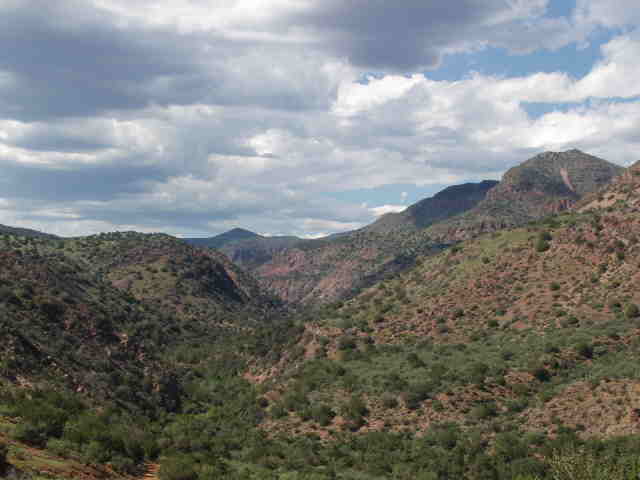|
|
RESOURCES
Resources: Annual Reports | Newsletters | Fact Sheets | Reports & Proposals | Links | Press Releases
Tonto National Forest Management Plan: Take Action Alert

The Tonto National Forest is asking for public input for revision of its land management plan, which encompasses approximately 3 million acres of amazingly beautiful and diverse public lands. The Arizona Wilderness Coalition has been, and is currently developing, numerous wilderness proposals encompassing over 100,000 acres. We are also asking the Forest Service to limit road densities across the forest to protect wildlife, natural and cultural values. The Tonto National Forest is home to places like the Superstition Mountains Wilderness and the Verde River. With Arizona toping the charts as the fastest growing state in the nation, we must act now to protect what little wild places we have left to seek solitude from the alarming growth. Find more helpful facts on the Tonto National Forest here.
Please Plan to Attend a Meeting or Submit Comments!!
Location |
Mtg 1 |
Mtg 2 |
Time |
Venue |
Payson |
N/A |
Apr 25 |
5:30-8:30pm |
Best Western Inn at Payson |
Pleasant Valley |
N/A |
Apr 26 |
5:30-8:30pm |
Pleasant Valley Comm. Center |
Globe |
Mar 2 |
Apr 30 |
5:30-8:30pm |
Besh-Ba-Gowah Archeological Park |
Mesa |
Mar 5 |
May 3 |
5:30-8:30pm |
Mesa Public Library, Saguaro Room |
Tonto Basin |
Mar 7 |
May 2 |
5:30-8:30pm |
Tonto Basin Elementary School, Gym |
Cave Creek |
Mar 13 |
Apr 23 |
5:30-8:30pm |
Paradise Valley Community College |
Submit your comments a variety of ways.
Email: tonto-plan@fs.fed.us
Snail Mail:
Tonto National Forest
ATTN: Plan Revision
2324 E McDowell Rd
Phoenix, AZ 85006
Here are some taking points and issues to raise when attending meetings or submitting comments:
The Forest Service is obligated under Forest Plan revision regulations and the 1984 Arizona Wilderness Act to review all existing roadless areas for wilderness. This includes all inventoried roadless areas, uninventoried roadless areas of 5,000 acres or more, and roadless areas contiguous to existing wilderness areas regardless of their size.
-
Arizona is the fastest growing state in the U.S. and the increased population will continue to stress our National Forest lands. Wilderness areas have the highest resource protections and are our best chance for protecting sustainable ecosystems and their components such as clean water, air, healthy wildlife populations, abd biodiversity.
-
Reduce road densities by implementing road closures to protect watersheds, wildlife, scenery, and quiet non-motorized recreation as well as decrease the road maintenance backlog, which is annually almost $3 million of taxpayer money.
-
Establish wildlife habitat areas and corridors to facilitate healthy populations of elk, bear, deer, mountain lion, and numerous other sensitive and game species.
-
Wilderness does NOT cut off access to visitors; it only limits the means in which visitors can travel within wilderness. Activities such as hiking, rock climbing, horseback riding, hunting, fishing, cross country and downhill skiing, river rafting, lake paddling, photography, stargazing, and camping are all permitted as long as no mechanized means of travel are used.
If there is other information you would like about the Tonto National Forest you can visit their website: http://www.fs.fed.us/r3/tonto/plan-revision/index.shtml or call them at (602) 225-5200.
If you want to learn more or get further involved in the efforts to protect wildlands on the Tonto National Forest contact Sam Frank at sfrank@azwild.org or (928) 717-6076.
|

